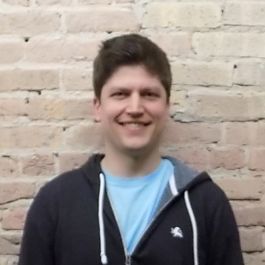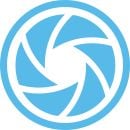Four years ago, Reddit user spirited_nowhere created a thread in r/programming sharing why they became a software engineer. Along with nearly 500 others, user NateTheGreat26 provided a TL;DR version of the post:
“This is horrible; who the hell made this?” — Birth of an engineer
That response generated hundreds of upvotes and comments and became one of the best-liked remarks of the day in r/programming, a community of more than 3.5 million programming enthusiasts.
Why did the quip strike such a chord? The response spoke to the commonly accepted notion that passionate software engineers have efficiency coded into their DNA. When they see something that’s not running up to par, they have an innate need to make it better and faster.
So when it comes to putting passions into practice via their careers, the cream of the software engineering crop wants to be challenged and given the opportunity to work on interesting technical problems. Without those challenges and opportunities, an engineer’s interest quickly wanes.
Finding a job isn’t usually the hard part. (After all, there are more than 3,000 remote and in-office developer and engineering roles on Built In Chicago right now, not to mention the fact that careers for software developers, quality assurance analysts and testers are expected to grow by 22 percent between 2021 and 2029, according to the Bureau of Labor Statistics.) But finding a working environment that prioritizes the ability to stretch their technical muscles and opportunities to grow — plus great people to work alongside — makes the search that much more difficult.
Employers are taking notice and creating dynamic cultures that champion engineers and give them an outlet to scratch that itch for efficiency. Below, engineering leaders at three companies — Reverb, Chime and Snapsheet — explain how they’ve created engaging engineering cultures that are responding to the wants and needs of skilled professionals who just want to make the world work a little better.
What they do: Reverb aims to help musicians and music sellers connect within its e-commerce marketplace.
What are the key characteristics and values of a good engineering team culture? And what are some ways you and your team bring them to life?
Our engineers develop a deep connection to the customer problems that they’re tasked with solving, such as, “How do I make sure anyone looking for this exact vintage synthesizer can easily find it?” We know we build more successful and innovative products when engineers have opportunities to hear from our buyers and sellers, such as by participating in the user experience research process.
We also know that to empower and expect engineers to frequently deliver meaningful change in a large, complex software system — especially on a rapidly growing team — we must have an environment where learning and teaching are valued. In fact, we recently introduced the Broken Guitar Award for the engineer who exemplifies our values of learning and teaching through their actions in response to an unexpected failure. We even send the winner an actual broken guitar from Reverb (most guitars on our site work, though!).
Finally, diversity, equity and inclusion are essential elements of our engineering culture. We want people to feel that they can bring their whole selves to work because we build the best products when everyone feels comfortable bringing their perspective to the table.
How do you ensure engineers on your team continue to feel challenged, engaged and excited by the work they’re doing?
Our mission is to make the world more musical, and our team is genuinely excited about the impact they can make through their work. Many of our users are passionate fans of the site who use our marketplace daily. They truly rely on Reverb for income to support their families, the perfect instrument for their next song and inspiration to fuel their passions. It’s rewarding to work on a product that makes it easier for people to express themselves or make a living through music.
We strive to create a smart balance of greenfield projects, innovative work and efforts related to optimizing our current products or systems. In all cases, we empower engineers to surface and make decisions about the hard problems that arise, while giving them support through peer architecture discussions, tools to measure their work and access to cross-functional partners.
Our engineering team is relatively small, and we’re building a marketplace that didn’t exist a decade ago, so there are a lot of opportunities to take on a wide range of exciting, different problems. For example, some people rotate from product teams onto platform enhancements, learning and growing with each opportunity.
We must have an environment where learning and teaching are valued.”
The world of work is constantly shifting, as are the wants and needs of today’s top talent. How are you continuing to evolve your team culture and respond to shifts in employee sentiment and technological and work trends?
Technology and trends have changed a lot since we launched in 2013, and we’ve learned a lot by partnering with Etsy, which acquired Reverb in 2019. Through it all, we still have an unwavering commitment to our mission.
We’re also committed to building diverse and inclusive teams, which is key to creating the best marketplace for music makers everywhere. By working with Etsy — which has a widely recognized diversity, equity and inclusion program — we’ve set annual DEI goals, launched our DEI council, and have already made our recruiting and interviewing process more inclusive.
We understand that team members want flexibility, which is why we are shifting to a hybrid work model. Going forward, engineers will have the option to come into the office only a few days per week or choose to work fully remotely. Our workspace will continue to be one that allows connecting, collaborating — and for many — music making. But employees will also have the option to work elsewhere if they want time and space to focus.
What they do: Mobile fintech platform Chime provides users with bank accounts, debit cards and ATM access through their banking partners. Instead of charging customers fees for such services, the company makes money each time a customer uses their credit or debit card.
What are the key characteristics and values of a good engineering team culture? And what are some ways you and your team bring those characteristics or values to life?
A healthy engineering team culture is built upon curiosity, community, trust, communication, feedback and diversity. Curiosity about ourselves, our team and our customers is crucial so we strive to understand and improve from all angles. Community helps us stay connected and provides safety for people to be their full selves at work. Trust means assuming that team members have the best intentions and everyone will work together with open and accepting dialogue to achieve ideal outcomes for the team and our customers. Feedback helps us work better together and stay honest with each other so that we can become better engineers and ship better products. Diversity allows us to represent a broader range of experiences and understand each other and our customers better, ultimately improving our products and services—as well as our team’s happiness.
How do you ensure engineers on your team continue to feel challenged, engaged and excited by the work they’re doing?
We focus on communication and empowerment. We start by understanding engineers’ goals and motivations — what drives them and their personal success — and helping map their projects, learning opportunities and overall career trajectories to those objectives. Then, we check in regularly with managers and individual contributors alike about the work they’re doing and how they’re feeling about it across the organization.
Finally, we work to constantly empower engineers so that they know they’re in charge of their own careers and we’re here to help them make adjustments when needed so they feel challenged and excited. Engagement follows suit.
Elements of a healthy engineering team culture at Chime:
- Curiosity
- Community
- Trust
- Communication
- Feedback
- Diversity
The world of work is constantly shifting, as are the wants and needs of today’s top talent. How are you continuing to evolve your team culture and respond to shifts in employee sentiment and technological and work trends?
We focus on flexibility — not implementing process for process’s sake — and listening to our team. This can mean flexibility in how we work, but also in the actual work we do. It starts with understanding why we do things a certain way and not being afraid to challenge the status quo, from work-from-home policies to code reviews to tooling and processes.
What they do: Snapsheet is a Chicago-based company that partners with insurance carriers to automate the appraisal and claim-filing process.
What are the key characteristics and values of a good engineering team culture? And what are some ways you and your team bring those characteristics or values to life?
Good communication and being receptive to new ideas is very important. Technology is always advancing, and engineers must constantly be learning new things to be successful. Clearly communicating those new concepts with teammates and peers in a positive environment is essential.
In order for a team to mature, it is important to continually modify and improve processes. As a manager, I like to discuss with my team what we can change or do better. Not every person or team is the same, and it is important to know what works well and what does not.
When each member of a team feels heard and included, the team is more successful and well-rounded.”
How do you ensure engineers on your team continue to feel challenged, engaged and excited by the work they’re doing?
As a manager, I encourage members of my team to voice their opinions, ideas and questions openly. Having an open forum enables members of my team to contribute their ideas and be engaged during each step of the development process. When each member of a team feels heard and included, the team is more successful and well-rounded. Additionally, feedback from team members can positively impact the product and lead to functional and user-friendly enhancements.
The world of work is constantly shifting, as are the wants and needs of today’s top talent. How are you continuing to evolve your team culture and respond to shifts in employee sentiment and technological and work trends?
Being forced to work remotely since last March has definitely challenged my team and me. As a result of that process, we have continued to reevaluate how we operate and find ways to be more connected and effective. Having more recurring video calls and social events has helped to encourage team building and relationships. We have also seen more full-time remote employees join the company, which has led to a more diverse group of colleagues.













